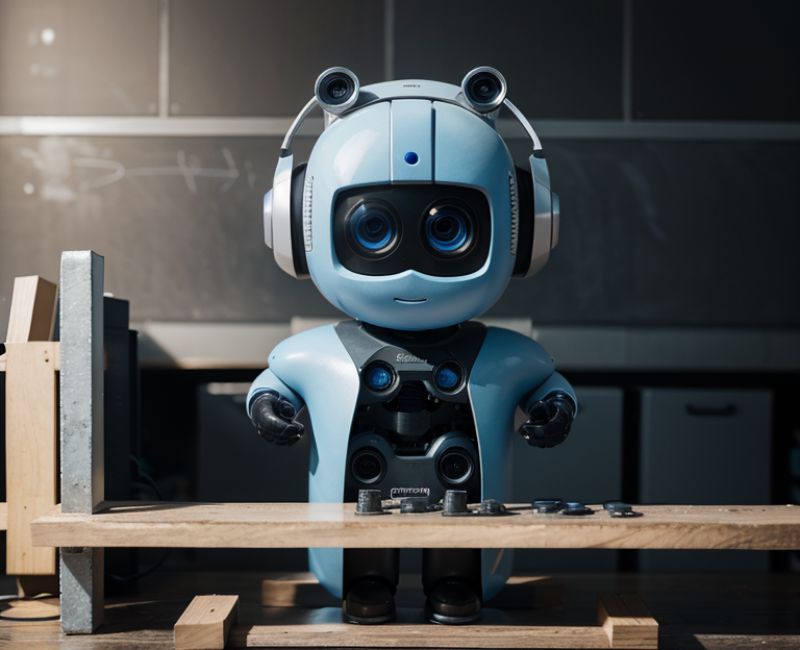What is a chatbot?
Chatbot can be defined as the artificial intelligence systems that the user interacts with via text or voice interface. The interaction can be the questions related to date and time, commercial transaction, hotel booking, and may be more complex problems. In order to develop an intelligent chatbot, the basic requirements are the use of AI, natural language processing, and machine learning.
Simple architecture for a chatbot can be like this:
The important part of the development is also that the chatbot should talk like a human being i.e. understanding of natural language should be there. Following are some steps that will assist a user while developing a chatbot:
- Understand the opportunities for an AI-based Chatbot
- Understand the goals of chatbot
- Designing the conversation area of chatbot
- Mode of building a chatbot
Understand the Opportunities for an AI-based Chatbot
It is must to understand the opportunities for an AI-based chatbot before actually building it. This is done by figuring out the work that can be automated by Artificial Intelligence solutions. To carry out a particular work activity, AI solutions depends upon the following criteria-
- Work complexity
- Data complexity
Depending upon the analysis of the work and data complexity, it results in four types of activity model:
- Expert
- Efficiency
- Innovation
- Effectiveness
Thus, when the requirements of building a bot are clear, it results in better designing of conversation with the chatbot.
Understanding the Goals of Customer
To be precise, understand why the chatbot is being built and how the client wants chatbot to work? The answer to both the query will assist the designer to create conversations leading to best solutions.
Designing the Conversation area of Chatbot
For designing a chatbot conversation, two types of interaction are taken into consideration. One is structured interaction that includes logical flow of information, choices, booking tickets, and including menus, etc. Another one is unstructured interaction, this segment includes freestyle plain conversation with family, friends, and other acquaintance.
Based on the type of interaction, designer develops scripts for the messages. While developing the script, it is must to keep the conversation topics close to the purpose of chatbot. The designer has to keep his mind open and think of all the possibilities before scripting conversations.
Mode of Building the Chatbot
There are two ways of building a chatbot. One is using non-coding platforms. There are 14 most powerful platforms that make building a chatbot easy. Out of those, 10 platforms have been explained in brief:
- Chatfuel , provides features like allowing user to request info, sharing updates, adding content cards, and letting user interact with the bot via buttons.
- Botsify, works on the drag and drop method to build bots.
- Flow XO, provides over 100 integrations. This platform has several pre-built templates for an easy start.
- Beep Boop, best and easy to create slack bots.
- Bottr, provides the feature of adding bot on your website.
- Motion AI, provides the better visual experience and lets you see the conversation flow like a flowchart.
- Chattypeople, this platform already has some predefined chatbots ready. One has to simply add products, Q&A, and general settings.
- QnA Maker, is created by Microsoft in which you just have to add URL of FAQ page and your chatbot will be created in few minutes.
- Recast.AI, enables to build, train, and run your chatbot.
- Botkit, possess several useful kits to extend the bot capabilities.
Another way of building chatbot is using Code- based Frameworks.
This is done by developers from scratch using programming languages.
The best code-based frameworks for building a chatbot are Microsoft bot framework, Aspect CXP-NLU, Wit.ai, and API.ai.
The advantage of using code-based framework is that they provide flexibility to store data, incorporate A.I., and produce analytics.
In conclusion, Chatbots should be integrated into the businesses as they are time-saving than expected UI flows, they provide quick solutions, and the user has a much better experience. Chatbots possess rich features that will help to bring a revolutionary change in the future of industries.
